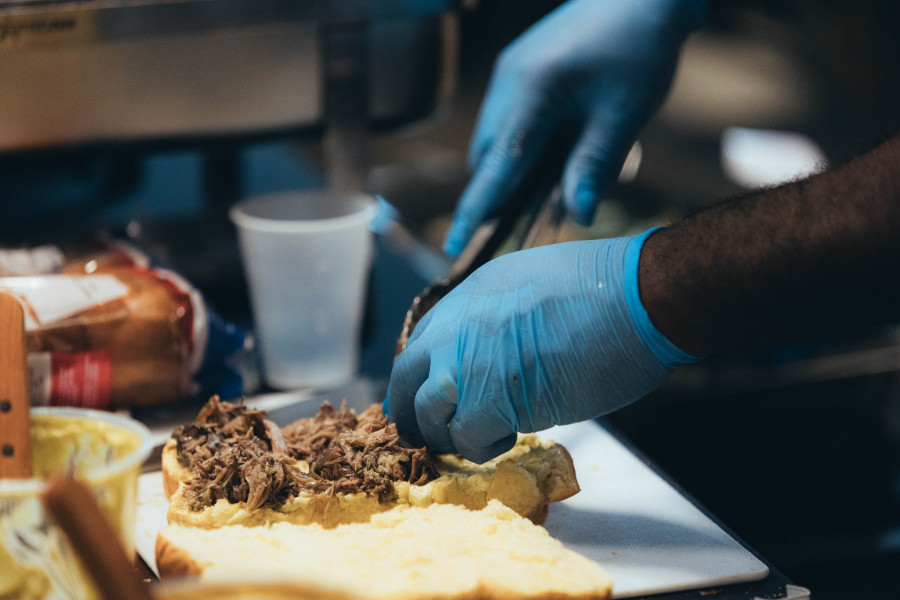But fast forward five years, and the scene looks different. Funding for DEI initiatives is shrinking, and Black restaurants are closing at an alarming rate. In fact, restaurants overall are closing at an alarming rate.
According to Restaurants Canada, there’s been an upsurge in closures in 2023, with bankruptcies up 44% – the highest annual figure in a decade. However, if you try to find out how many of those are Black-owned, the data doesn’t exist.
Our own platform, ByBlacks, hosts a restaurant week annually, providing free marketing to Black-owned restaurants while creating a prix fixe menu or $10 special to attract new customers. This marketing opportunity is available nationwide and in partnership with various Destination Marketing Organizations (tourism boards) across Canada. We keep track of which participating restaurants have stayed open or closed over the years and found that 22% of those who participated in the campaign have closed permanently or temporarily over the last few years.
So why does having detailed data matter so much anyway?
Without accurate data, policymakers, funders, and support organizations don’t know who needs help or what kind of help they need. It’s like trying to fix a leak without knowing where the leak is. You can’t target resources effectively, and support remains generic or even misplaced.
Organizations like The Re-Seasoning Coalition (TRSC) have stepped up to the plate to market Black owned restaurants nationally and support a growing customer base. But even these efforts are limited when granular data is missing.
TRSC is a non-profit organization dedicated to increasing the representation of Black Canadians across all levels of the foodservice industry through research, programming, and community engagement.
Participants in the coalition, including independent operators, chain restaurants, suppliers, and businesses in between, receive tailored support in reconstructing their organizations to become the best-in-class companies of the future. The Re-Seasoning Coalition collaborates with the Foodpreneur Lab, the only Canadian Black woman-founded and led nonprofit advancing racial and gender equity for Canadian entrepreneurs in the food ecosystem.
While many community-based organizations hoping to advance equity in the food service industry may have the financial support of the government at times, the data they require to validate their existence is lacking, which impacts the opportunities available to restaurateurs.
When asked for data specific to Black restaurateurs, the Restaurant Canada Show, though having hosted a Black Pavilion with The Re-Seasoning Coalition and Foodpreneur Lab, had none to share. Similarly, the office of MP Rechie Veldez, the former Minister of Small Business and current Secretary of State (Small Business and Tourism) had no data to share on Black owned restaurateurs.
MP Veldez’s office shared the above-mentioned organizations (including ByBlacks) as resources and directories, including data on Black owned businesses but nothing specific to restaurants. Statistics Canada also only has data on Black-owned businesses at large, and not specifically on restaurants.
As restaurants are a unique type of business compared to retail, it is surprising that there is no subset of data for Black restaurants. Furthermore, when you consider how cultural education and awareness is often shared through food, it is a shame that the lack of data may contribute to the failure of businesses that keep Black communities thriving and help Black families prosper.
The data gap has real consequences. Some entrepreneurs manage to succeed despite the hurdles, while others falter.
For instance, Damilola Agbabiaka opened Dalas African Cuisine in Moncton, New Brunswick, to bring authentic West African flavours to her community.
However, she faced numerous challenges, including a fire code requirement that temporarily closed her restaurant, as well as struggles with seasonal sales drops, high operating costs, and burnout. Despite her efforts—catering events, employing young Black immigrants, participating in local festivals and winning an award—her business closed in 2023. She reflects, “I should have hired helpers from the start and would recommend other starting restaurateurs do so if budget allows,” but notes that limited access to capital and support, along with high costs, make it difficult for newcomers.
{https://www.instagram.com/p/Cgwa01mOrxS/}
Damilola shares that she was also wearing all the hats, from running the front desk to serving, cooking, cleaning, managing social media, handling customer feedback, and still trying to develop new programs to grow the business. She adds that certain business networks in New Brunswick claiming support are “ambiguous without real solutions.”
Damilola was completely burnt out physically, emotionally, and mentally. “Unfortunately, towards the end of winter, we had great challenges keeping up with our monthly rent of $6,900, alongside utilities and operating costs.” Later the same year Dalas African Cuisine closed.
Damilola also got feedback from some customers that the food was too expensive. There is sometimes an expectation that “ethnic” food should be cheap. However, most people are unaware that many ingredients used in African and Caribbean cuisine can be challenging to source.
Sophie Anglin operates Ellis Kitchen, a Jamaican-themed Caribbean restaurant located in Hamilton, Ontario, on Ottawa Street North. “We often have to travel outside the city, sometimes for hours, just to source the ingredients we need. It’s exhausting and adds stress to an already demanding schedule.”
{https://www.instagram.com/p/CusucXQgkVC/}
Resa Solomon-St. Lewis owned Capital Fare Café, a small sit-down eatery in Ottawa, alongside her catering business Baccanalle. Her setup was a hybrid model—part café, part commercial kitchen—located in an office building. A combination of things led to her decision to close the café and focus on the catering business. Resa says combined with financial losses due to the pandemic and lack of access to capital, it was the best option.
“Even when people came back (after the Covid lockdown), instead of coming and hanging out at the café, they were quickly looking to get home and not be around anybody. That was really like a business killer,” Resa recalls.
But Resa also noticed that many nearby businesses chose to stay closed during lockdowns to qualify for government support. That meant Resa, despite her struggles, technically made revenue and missed out on some of the relief funds designed to help small businesses. “Had we maybe been in the know a little bit more, or maybe networked better and had some more connections as to what direction to take, maybe we might have been able to make a different decision,” she reflects.
Resa also bootstrapped her business before programs like Foodpreneur or the Black Entrepreneurship Fund even existed. “We didn't have as much access to capital to leverage to grow the business,” she says. “Or any flexibility to weather the storm. We're based in Ottawa. We don't really have something like a restaurateur's association or that support network.”
Resa’s catering business Baccanalle is doing well. Most of her business comes from catering, events and take-out.“We are a Caterer and specialty foods company with healthy lifestyle and fine dining options. We cater to many different kind of events like personal celebrations, markets, festivals, and corporate lunches, professional sports teams, and exclusive diplomatic and political occasions. I think this really differentiates us from traditional restaurants,” says Resa.
{https://www.instagram.com/p/DLD1TKlRJq2/}
Resa’s accolades speak for themselves—she’s won the prestigious Embassy Chef Challenge twice, representing Trinidad and Tobago, and she’s been appointed as one of the four resident chefs at the National Arts Center for 2025. She also hosts a cooking show on Rogers TV Ottawa and is working to expand her catering business and product line, which includes sauces, spice blends, and specialty drinks.
Her experience, and that of others, underscores a bigger issue: Black entrepreneurs often lack the support networks, funding, and information needed to thrive, especially in smaller markets. Without concrete data, these issues stay hidden, unaddressed, and continue to hold businesses back. It keeps Black restaurants invisible to those who could help. It prevents policymakers from crafting effective programs. It keeps funding and support efforts generic, and misses the mark.
We need to start seeing Black restaurants for what they are: vital cultural hubs, economic drivers, and stories of resilience. But to do that, we need the data—truthful, detailed, and specific—that will help us understand and dismantle the barriers holding these businesses back.
Until then, Black-owned restaurants will continue to face an uphill battle, fighting in the dark.

 By
By 





